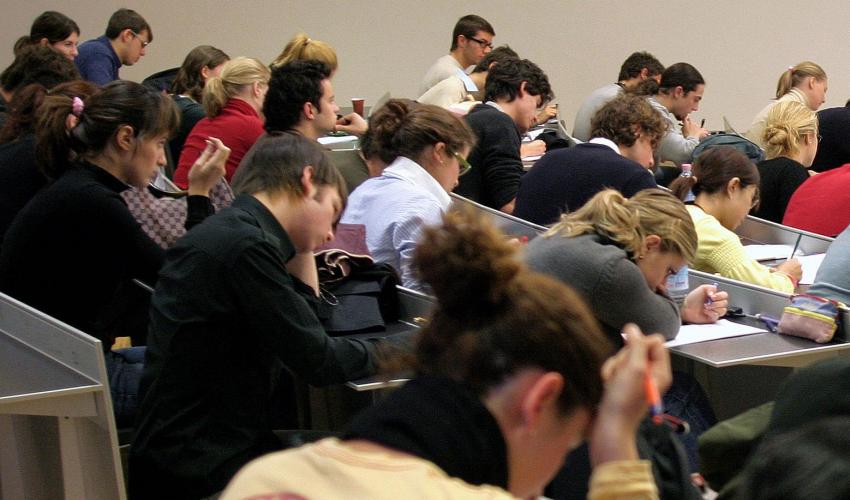
Economic History, a Course That Will Make History
TWELVE CLASSES, INCLUDING 1,450 STUDENTS, ARE INVOLVED IN THE LARGEST INNOVATIVE LEARNING EXPERIENCE, WHICH MAKES USE OF DATA BANKS AND ELEARNING SYSTEMS IN ORDER TO COMPLETE PARALLEL GROUP WORKSFor 1,450 students, the Storia economica (Economic History) course has had an unexpected turn. The second part of Elisabetta Merlo’s lectures have been replaced by teamwork. This way of teaching was tested by two classes last year. “The experimentation sprang from a specific request of the Rector: he wanted freshmen to work in a team”, Merlo says. The test involves twelve classes, which means about 1,450 students of business administration and management (CLEAM), economics and finance (CLEF) and economics and social sciences (CLES), a team of 16 teachers and teaching assistants, plus the help of the Library, the information systems department (ASIT) and the innovative teaching lab BETA.
The Storia economica course has gone through a radical reorganization. It’s now partitioned in two parts. Students learn the theoretical structure during the first eighteen traditional lectures. They access the second part of the course through an intermediate test. Grouped in five or six, they work on projects they will present in early May. The topic is globalization seen through the lens of the three different bachelors involved: globalization, international markets and business competitiveness; globalization and inequality; globalization and financial markets. The Library is working to make reading material, historical sources and databases accessible; ASIT explains to students how to use the university e-learning systems; BETA manages the dynamics of the classroom, set the rules of an effective presentation, and provides guidance on the evaluation model that integrates the existing one.
“It’s a great innovative learning experience”, Merlo says. “We give students documents and the key to search through them. Then we ask them to select the most important features. Last year we experienced that when you push students to make a choice, their team dynamics are put under stress. When the work is done, they finally understand the importance of evaluating, selecting and analyzing information, and of enhancing their ability to summarize different points of view. It’s our goal”. Teamwork is the key to a better learning experience. In the front lecture mode, students study to pass exams, and then they tend to forget what they have learned. When they work in team, they get a long term learning.
Veronica Binda, CLEAM professor, appreciates the practical side of learning. “Students start from primary sources – in my case, corporate annual reports, financial statements, letters, diaries – and make the effort to put together the pieces of the theory they have learned in the first part of the course”. Mario Perugini, CLES professor, stresses the need to prepare undergraduate students to the skills they will use in their MSc programs and in the working place. “Actually, the students themselves ask us to prepare them to work in team and to make public presentations. They want a leading role in the learning process”.
The teachers involved in the project, alongside Merlo, Binda and Perugini, are Marina Nicoli, Matteo Di Tullio, Gian Luca Podestà, Massimo Amato, Michele D’Alessandro, Giorgio Bigatti, Fabio Lavista. The teaching assistants are Catia Brilli, Federico Del Tredici, Lavinia Parziale, Floriana Mulazzi, Hector Garcia-Montero, Roberta Frigeni.
by Claudio Todesco
